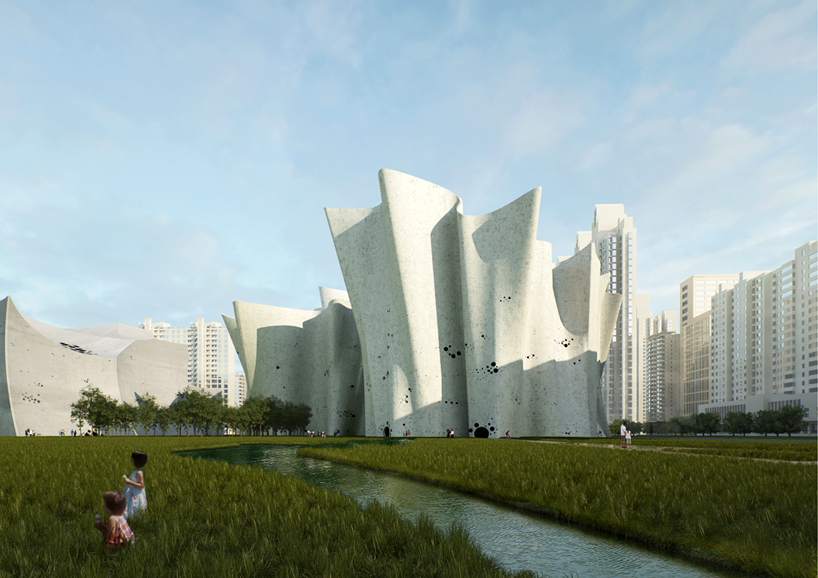
CHRISTIAN KEREZ PRESENTS GUANGZHOU CULTURAL DISTRICT AT BELGRADE DESIGN WEEK
christian kerez presents guangzhou cultural district at belgrade design week
designboom oct 21, 2014
at this year’s belgrade design week, swiss-based architect christian kerez has presented plans for a new cultural district to be developed in the chinese city of guangzhou. positioned at the southern end of the region’s urban axis, the project fuses together natural elements and typologies to form a public retreat away from the hectic and chaotic environment of the urban center.
stretching along the banks of the zhujiang river, the vast 55 hectare scheme comprises the city’s museum, art gallery and science museum, with all three structures organized around ‘lingnan square’ – an undulating park that features meandering rivers and small areas of woodland. to be constructed adjacent to the 600-meter tall canton tower, the development is also an important tourist destination, aimed at attracting growing numbers of international visitors from around the world.
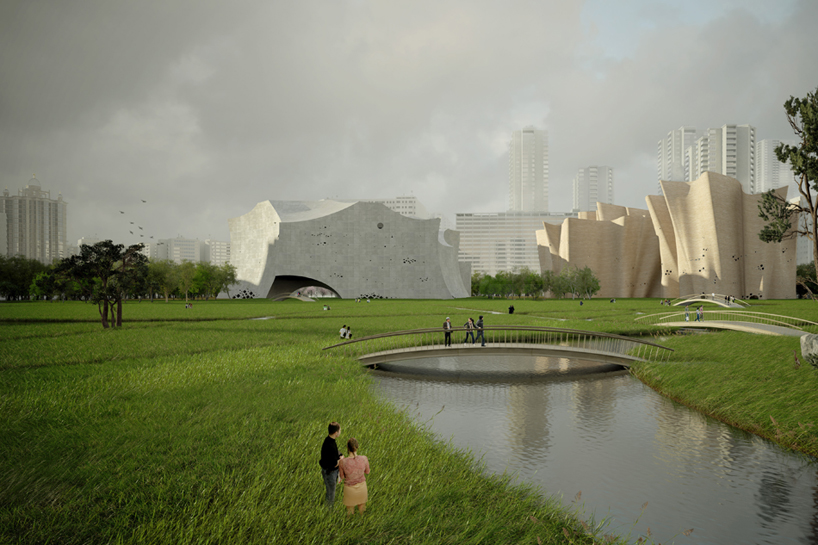
to enhance continuity, the main roads that traverse the site have been positioned underground, establishing an uninterrupted landscape for pedestrians. the terrain then continues within the three museums – holistically connecting the various institutions. each of the site’s buildings appear as organic sculptural shapes, rising as mountains above the plane in a way common to chinese paintings.
‘the obsession was to come up with a huge public space where tourists coming to guangzhou could find a place to stay, a place to be’, explained kerez, speaking at belgrade design week. ‘the structure is made of shells, so the façade is a self supporting system with a hanging roof. these museums don’t belong to the city, but rather to the landscape.’
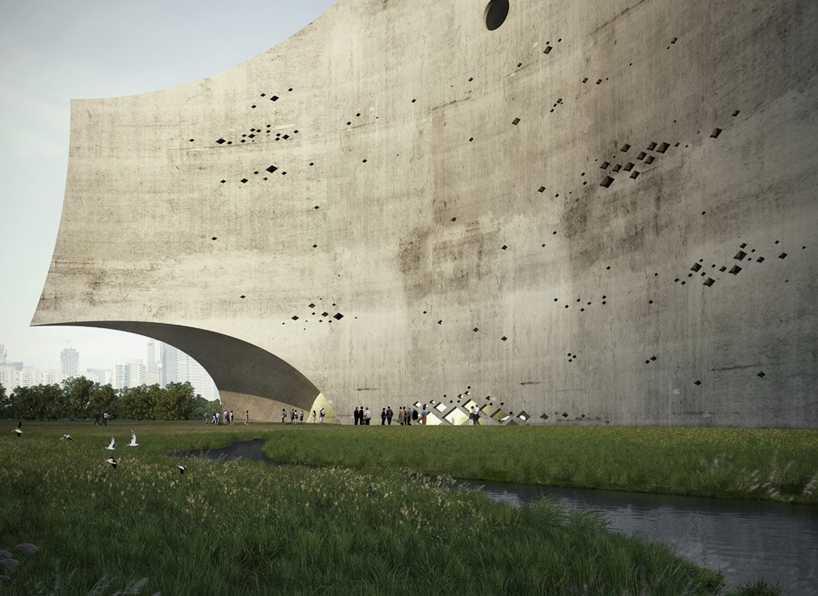
the distinctive appearance of the guangzhou art museum references taihu stone, a porous rock that is found in limestone caverns. at the center of the plan a large domed void helps establish a more intimate landscape, while a circular aperture in the ceiling floods the volume with natural light. internally, the monumental scale of the design is revealed, with stairways and circulation routes spanning vast expanses of space.
working in harmony with the masterplan’s built environment, the continuous terrain helps naturally unite the three museums with the canton tower’s 7 meter podium, an important aspect of the local lingnan culture. the design seeks to present a dynamic and vibrant version of guangzhou, establishing and consolidating the city’s burgeoning reputation as a cosmopolitan destination.
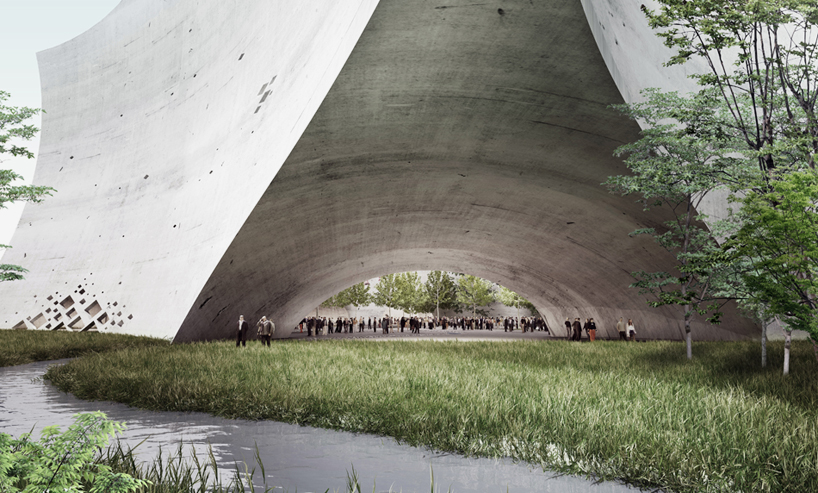
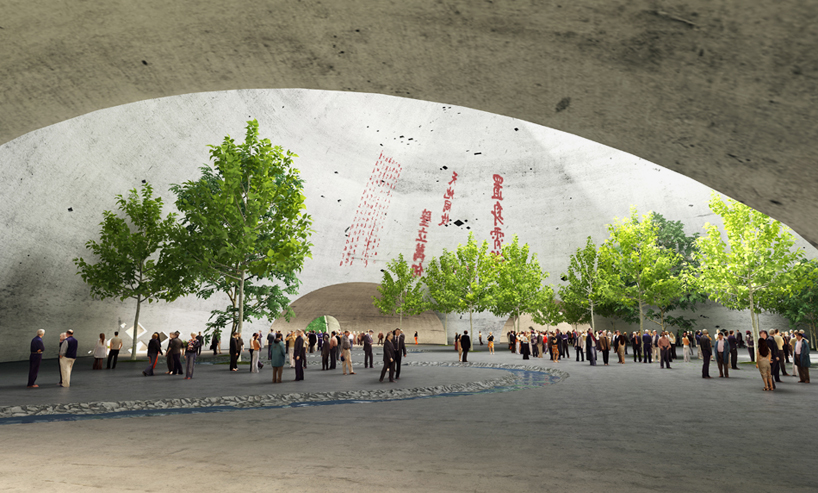
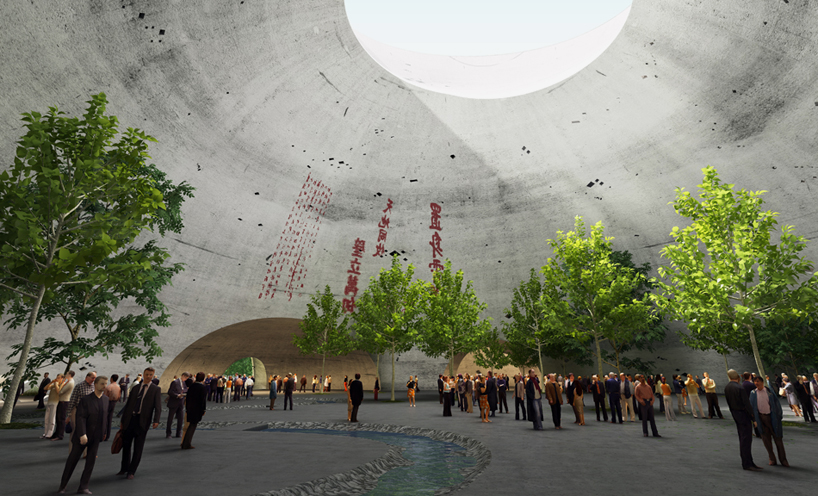
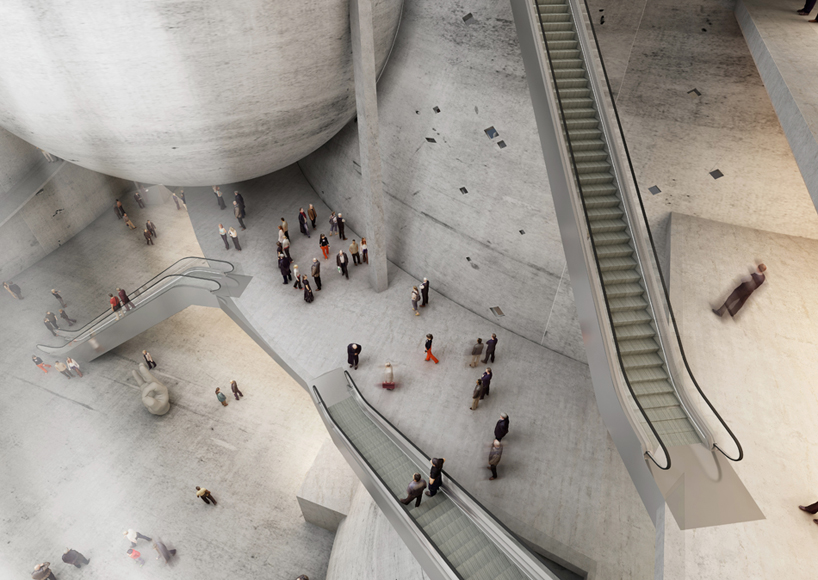
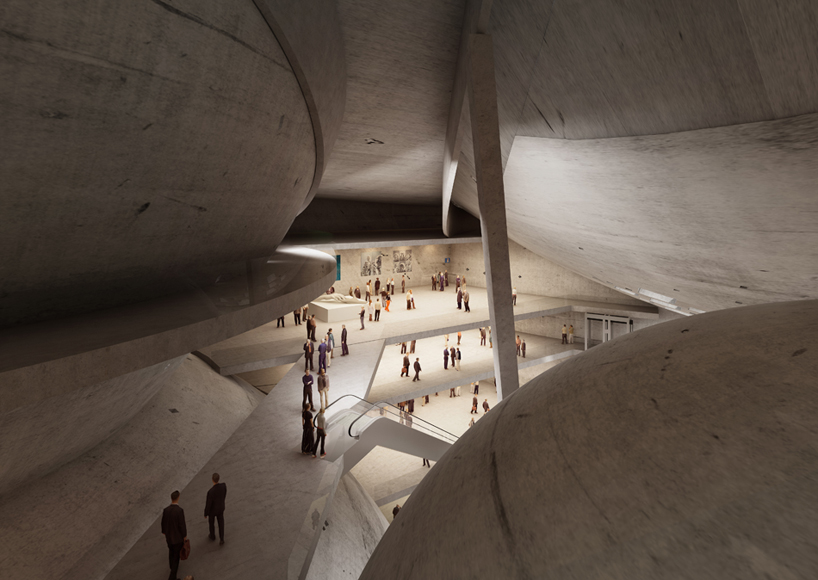
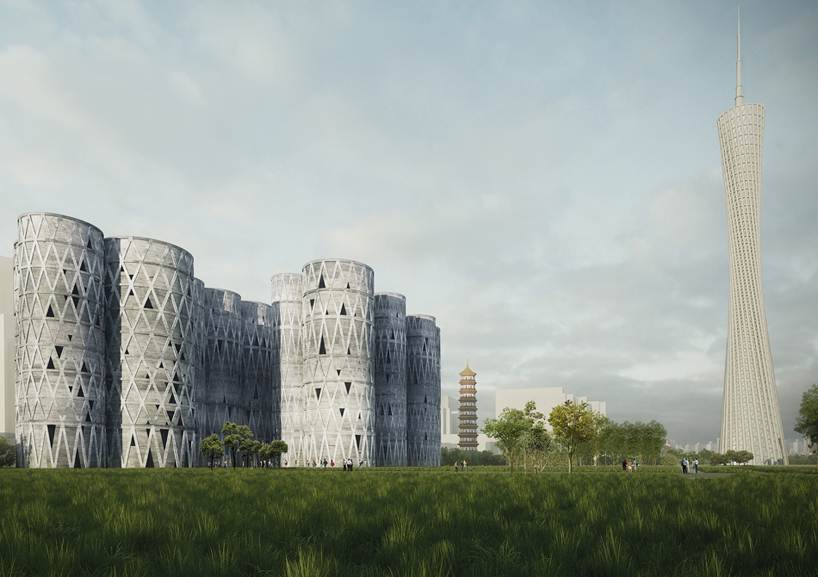
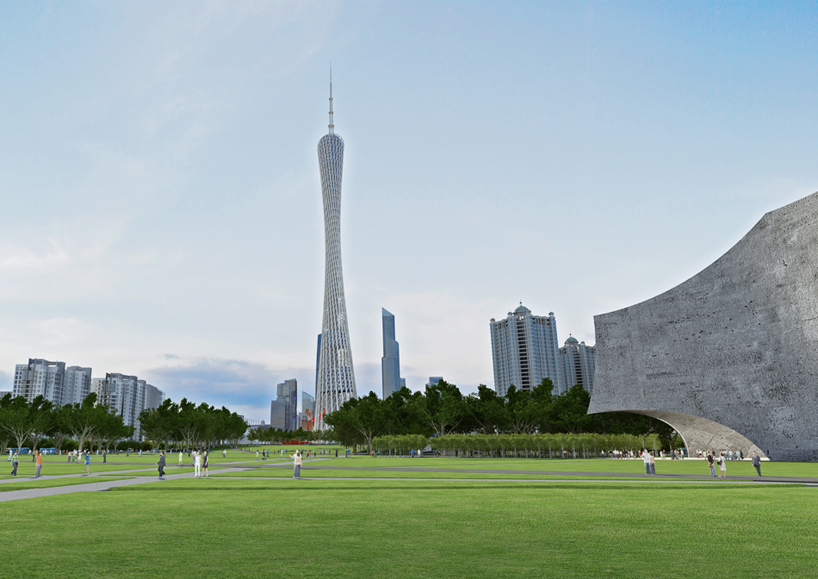
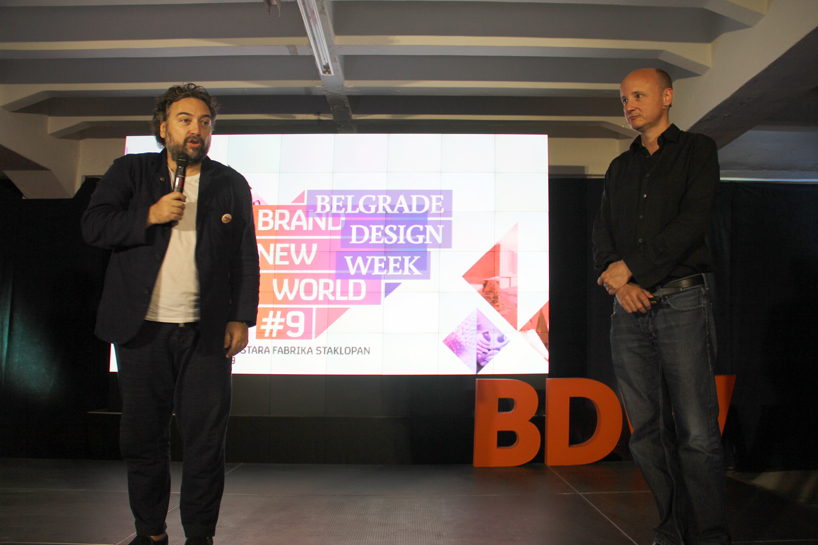
image © designboom
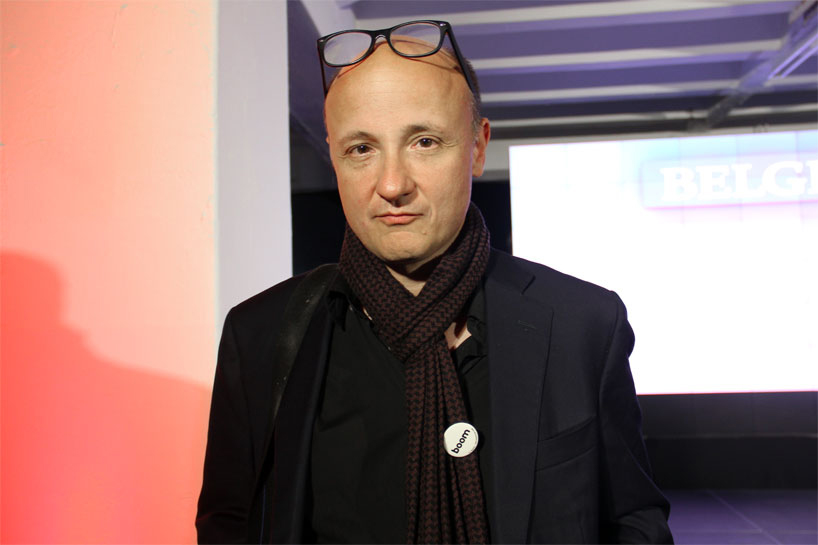
image © designboom







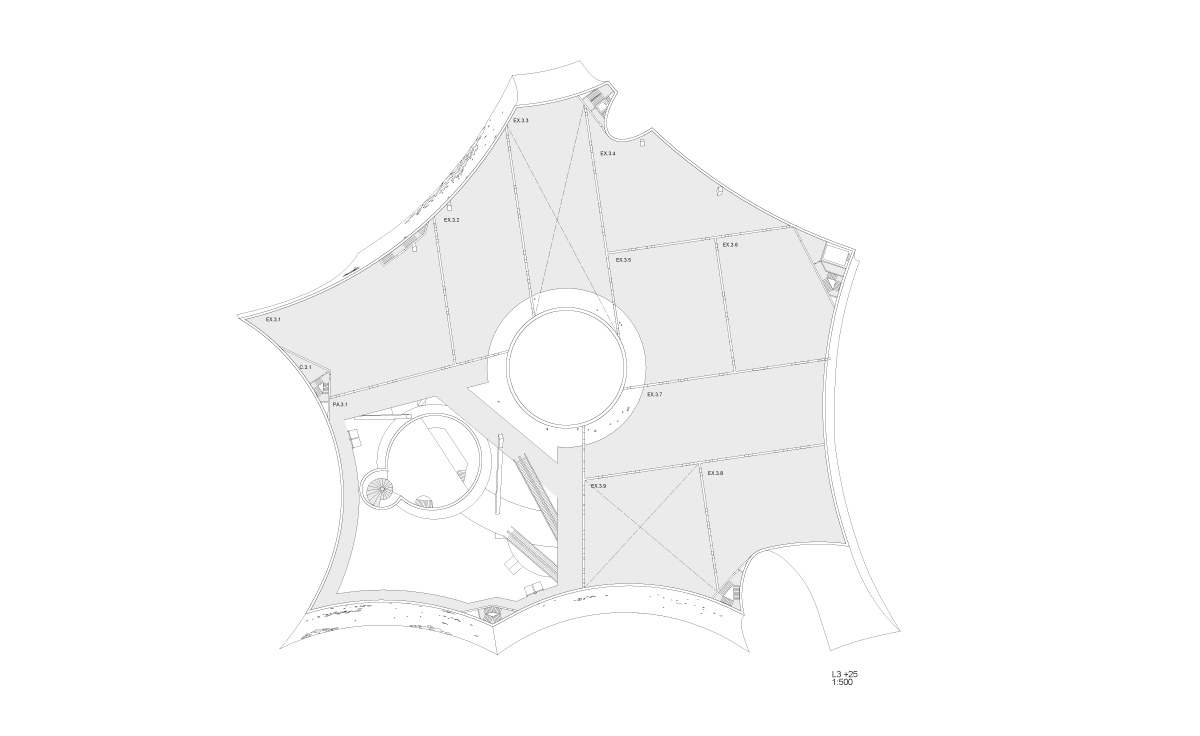
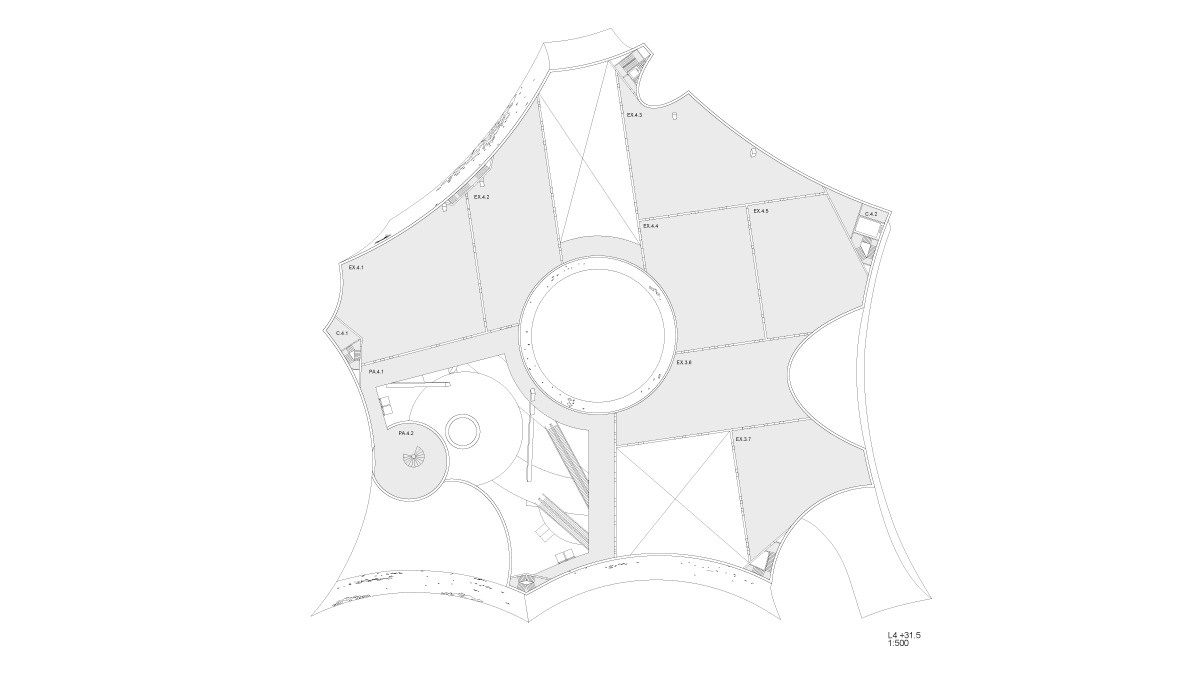
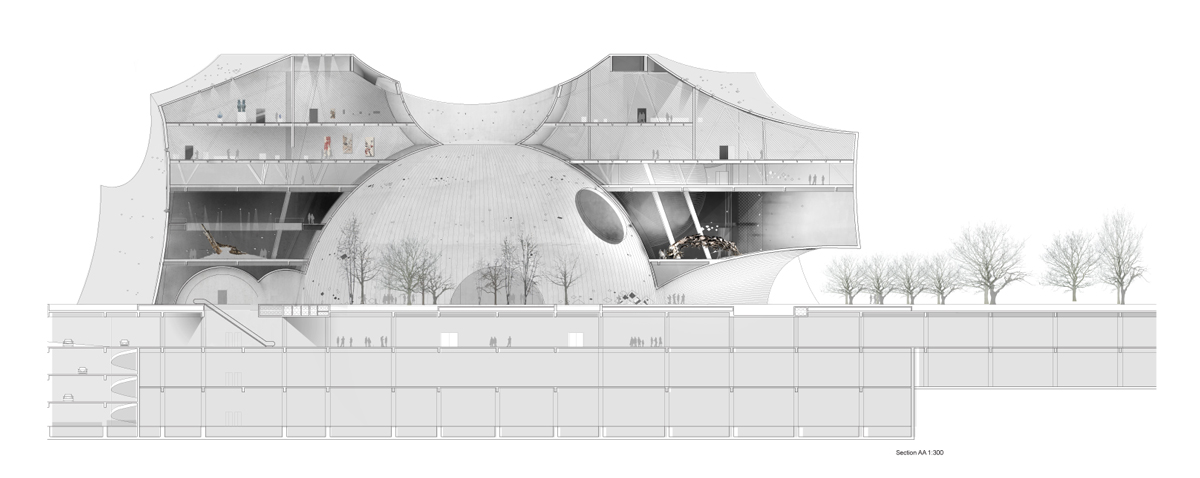

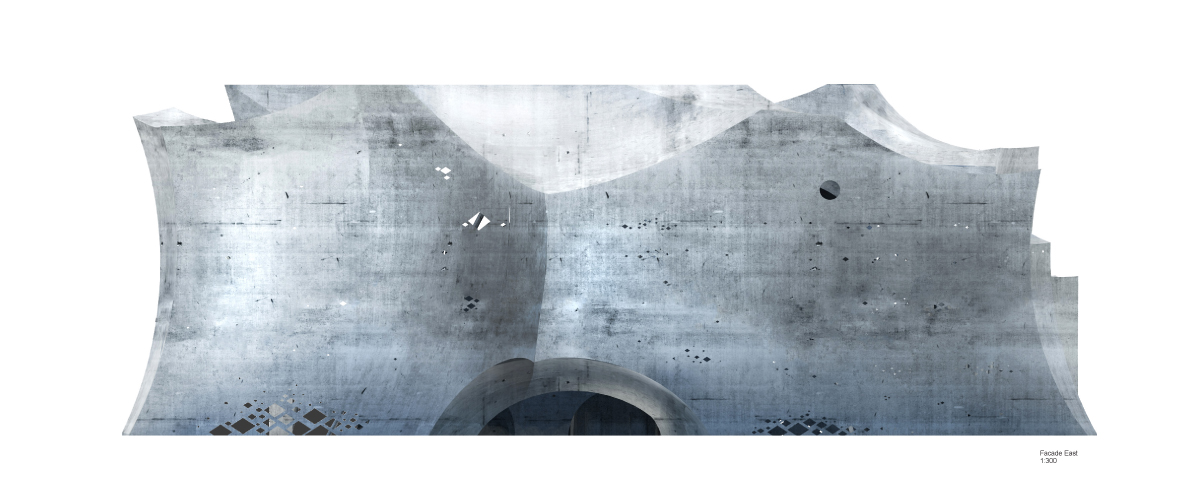
east façade




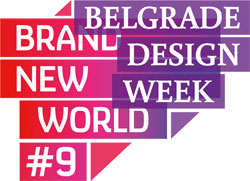
about belgrade design week:
2014 marks the ninth edition of belgrade design week, an annual, internationally-renowned festival for creative industries and modern business in serbia and throughout the south east european area. since 2005, founder jovan jelovac has successfully forged multicultural connections between artists, designers and entrepreneurs from the region with the greater global design scene. the initiative serves as a platform for creatives to engage in the exchange of ideas across a range of disciplines — advertising, architecture, arts management, communications, design, fashion, marketing, new media and publishing — delivering approximately 30 international speakers who share their perspectives and personal developments in their respective fields.
this year’s conference program ‘brand new world’ sets opens up discussion regarding the creation of new values in today’s fast changing world. on the occasion of this edition, president of the republic of serbia, tomislav nikolic opened the initiative, stressing the importance of the creative industries for the continued development of the country’s economy. local designers stand side by side with some the world’s greatest talents in a rare opportunity to bring the world to belgrade and to present belgrade to the world. find out more about the program, selection of keynote speakers and exhibition sites on designboom, here.
philip stevens
read the original on designboom
